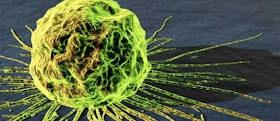“Monoclonal antibodies” may sound like a great name for a heavy-metal band, but actually they’re the basis of best-selling pharmaceuticals raking in about $50 billion dollars a year.
The two-year-old Israeli company Immune Pharmaceuticals is fast emerging as a leader in developing new ways to use these antibodies, which are found in drugs such as Herceptin for breast cancer, Remicade to treat autoimmune diseases and Erbitux for head, neck and colorectal cancer.
“We are building an Israel-based Center of Excellence for Monoclonal Antibody Drug Development with access to best-in-class novel technologies from world-class academic institutions including the Hebrew University of Jerusalem and the Weizmann Institute of Science,” says founder and CEO Daniel Teper. “We expect to initiate collaborative research programs with biotech and pharmaceutical companies later this year.”
Israel’s Weizmann Institute of Science played a significant role in developing these drugs, which are prescribed selectively to patients likely to respond best. “This is a big step up from the 1990s, when everyone with a certain disease got the same drug,” says Teper.
Today’s monoclonal antibody drugs must be administered together with chemotherapy, which often is effective but can cause significant collateral damage.
At the recent meeting of the American Society of Clinical Oncology in Chicago, the buzz was about new drugs combining the power of anti-cancer drugs with the targeting abilities of antibodies. The first generation of those drugs, antibody drug conjugates, is now being approved for resistant cases of Hodgkin’s disease and breast cancer.
Immune is going one step further, using nanotechnology and biotechnology to deliver existing and new cancer drugs more safely and effectively.
While currently only a few chemo pharmaceuticals can be attached to each antibody, Immune’s “guided missile” system “puts thousands of toxic drug molecules inside a nanoparticle like a spaceship, so it’s imprisoned until it gets to the cancerous tissue,” says Teper.
The method was developed by a team under Hebrew University Pharmacy School dean Shimon Benita, who chairs Immune’s scientific advisory board. Immune licensed it from the university’s technology transfer company.
“It has a double targeting mechanism — it goes through vessels into tissue, and the antibody gets it right into the cell. People are now saying the future of medicine, and specifically the future of treating cancer, is in the targeted missile.”
Pages
▼
Thursday, July 19, 2012
Israel saving the world, again
From Israel21C:

